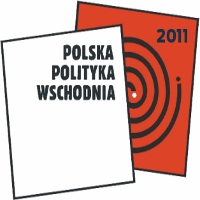Polish Eastern Policy – Quo vadis?
November 23, 2011 -
Olga Adamczyk
-
Bez kategorii

logoPPW2011_s.jpg
The Polish Presidency of European Council is slowly coming to an end. One of the priorities of the presidency was the Eastern Partnership and the advancement of cooperation with Poland’s Eastern neighbours of the European Union. However all eyes have been focused on the events of the Arab Spring and the crisis in the Eurozone, eclipsing the goals of Poland’s policy in the East.
The recent conference in Wrocław (November 18th and 19th 2011) on Polish Eastern Policy hosted by the Jan Nowak-Jeziorański College of Eastern Europe was a forum for discussion and debate, as well as a professional analysis of the situation east of the EU border. Poland, which has assumed the specific role of mediator between the West and the countries of Eastern Europe, is developing its policies based on modern means. In Wrocław, experts and participants extensively discussed the problems which infringe on the strengthening of relations between the EU and the East, the role of Poland in this process, and the unusually important Polish, but also Eastern, point of view.
The basic question, which was examined during the conference focused on how to better understand the political and social systems in the countries of Eastern Europe, and how to adapt Polish and EU activities to strengthen relations with these countries to further develop cooperation?
This discussion on the first day of the conference was split into two panels: “Eastern Europe stuck in the waiting room” and “Eastern Europe: backing away from democracy”. The analysts agreed that considering how diverse Eastern Europe is, the EU does not have any real effective tools to engage the East, which includes the 2009 Polish-Swedish initiative known as the Eastern Partnership. The democratic tendencies which we have observed in countries of the Eastern Partnership such as Ukraine during the Orange Revolution in 2003 and 2004, Belarus before the 2010 presidential election, as well as in Moldova and Georgia, have all unfortunately lost momentum. The West, which in the face of the dramatic return of previous internal policies of these countries, cannot formulate a single position, nor find the necessary instruments or tools to help with the concerns in the East.
Eugeniusz Smolar, an analyst for the Polish Institute of Public Affairs, stressed that it is the lack of will and faith of the countries in this region which is the main cause for stagnation. “The deciding element on the acceptance of Poland into NATO and the European Union was determined by all sectors of Poland – its political elite, the economy, and society.”
The post-Soviet countries are struggling with an array of factors which are limiting, or even rendering impossible, the advancement of cooperation with the West. This was emphasized by Maria Przełomiec of Polish Public Television (TVP), who noted external forces such as the imperial aspirations of Russia fighting to keep its sphere of influence, as well as the powerful pro-Russian lobby in Western Europe.
Internal factors, however, were recognized as being critical and included the lack of an accountable elite (political, social and economic) in a position to develop an appropriate system of institutions. Former dissidents of the Soviet Union in which the nations of Eastern Europe had placed their hopes, proved to be unable to carry out any real, systemic reforms, or were met with resistance. One such example is Abulfaz Elchibey, the leader of Azerbaijan in the early 1990s who originally supported Western investment and openness, but later fell victim to a coup d’état and whose reform projects have been permanently abandoned.
The panellists, who painted a gloomy picture of the situation in the post-Soviet countries once considered the “horses” of Europe such as Ukraine, Moldova and Georgia where the hope of democracy was at its highest, argued that the “Eastern-ness” of these countries cannot be forgotten.
During the panel sessions of the second day of the conference called, “Russophile or Russophobe – how to rationally speak with Russia”, and “New Technologies: threats and chances for the East”, much was discussed about the need to support the nations of Eastern Europe with all means available in the creation of grass-roots movements and other alternatives to the present regimes. Joint projects in the sphere of trade, education and cultural exchange as well as the use of modern technology, are all areas which could make an effective difference.
The conclusions were clear. We cannot sit and wait for a miracle. “These states have only existed for 20 years, and they all came with the same problems as us; only even more so. We can help them build an elite, but cannot build it for them,” said Agnieszka Romaszewska-Guzy, Director of Television Belsat, an independent Belarusian TV station which broadcasts from Warsaw. “If there is no social will, or no climate for change, there will be no revolution,” she concluded.
Maybe it is worth giving up on the idea of revolutions and focusing on the real activities which we are in a position to assist. Maybe Polish Eastern policy should deviate from the Promethean course it has been on and begin to build egalitarian, rational relations with Eastern Europe. Perhaps Polish Eastern Policy should not be based on a principle of higher “moral” or a sense of greater mission, or even fanaticism or cynicism. It should rather be built on a foundation of complete dialogue for both sides (East and West), along with the desire to understand each other, which would open the door to make real changes in the East.
Olga Adamczyk is a political science student at the Jagiellonian University in Krakow, Poland, and an intern with New Eastern Europe.
Translated by Adam Reichardt

































